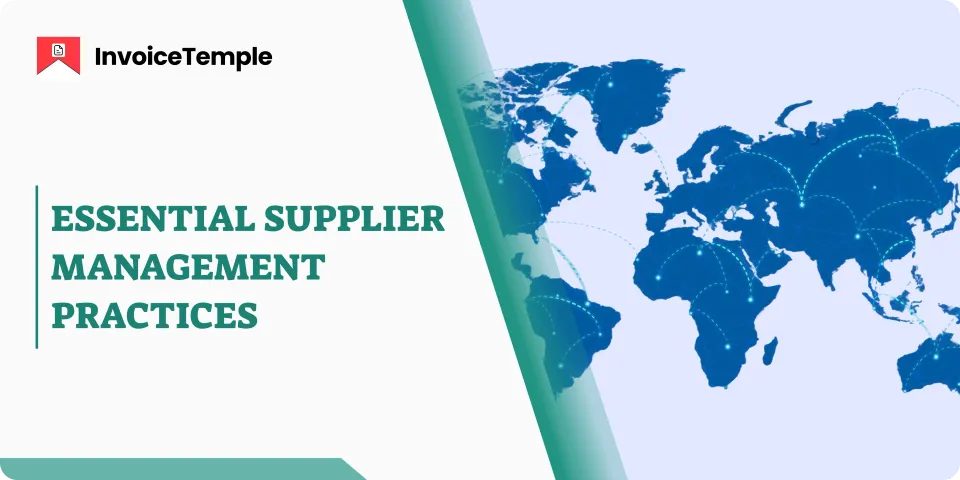Essential Supplier Management Practices for Smooth Business Operations

Business operations include several activities like the production process, supplier management, marketing services, sales department, client management, etc. All these processes must be done perfectly to experience smooth business operations. A crucial process among them is the supply chain management.
Supply chain management is a process that every large-scale business must undergo for an uninterrupted business process. The better the supplier relationship, the more resilient and streamlined the business operations become. For better supply chain management, some effective practices can be carried out. If you’re a business owner looking to organize and strengthen supplier management, then this blog is for you. It explains the key practices for a smooth supplier management process.
Who are the Suppliers to the Business?
Suppliers are the people or businesses that supply products to various businesses or clients. They play a major role in the supply chain. The products supplied by them can be of any form. It may be used as raw materials, semi-finished goods, finished goods, etc.
What is Supplier Management Process?
Supplier management is a whole process that includes the steps of identifying the suppliers, choosing the right one, negotiating deals with them, maintaining a long-term relationship with them, etc.
Common Issues Faced by Suppliers
1. Sometimes, fluctuations may arise in the pricing, which leads them to obtain a profit lower than the fixed one.
2. Factors like war breakouts, transportation strikes, natural disasters, etc., disrupt the smooth flow of materials and make the situation worse.
3. When the clients or customers delay the payments, it restricts the suppliers from reinvesting, and it disrupts their cash flow.
4. Sometimes conflicts may arise between the suppliers and the clients. This can delay the payments and lead to inefficient operations.
5. Due to the increase in competition in the global market, suppliers often reduce their prices, which does not give them the expected profit.
Best Practices for Supplier Management in Business
Good supplier management can bring a lot of benefits to the business. For better supplier management, some best practices can be followed, and they are as follows.
1. Switch to a Single Platform to Track All Your Suppliers: As a business owner, you may have to deal with lots of suppliers for your business to function. Managing their data is crucial for better supplier management. This can be done effectively by using the supplier management software, where all the information is saved accurately and can be accessed easily.
2. Set Clear Objectives: Setting clear objectives for the supplier management process helps the business ensure that quality products are being received and sold to its consumers. This builds trust and makes the procurement process of goods easier.
3. Categorize Your Suppliers into Manageable Groups: If your business deals with numerous suppliers, then categorize them based on the goods that you buy or under any other relevant categories. By doing so, the supplier management process will be made much easier.
4. Monitor Supplier Performance Consistently: Once you have agreed on a deal with a supplier, monitor their performance continuously. If their performances are subpar, initiate a negotiation process and implement effective measures to address the issues.
5. Information Handling: The quick and effective sharing of information between the supplier and the buyer results in speedy and efficient business operations. This also helps in managing the inventory from both sides and giving an input of clear and accurate information results in obtaining quality products at the right time.
6. Create Backup Strategies for Supplier-Related Disruptions: It is not certain that every supplier relationship will be long-lasting. Some issues and consequences may arise, but during this time, your business must be ready to face this situation with proactive planning and strategic thinking.
All these practices play a major role in better supplier management. So, start it in your supplier management process and attain better results.
